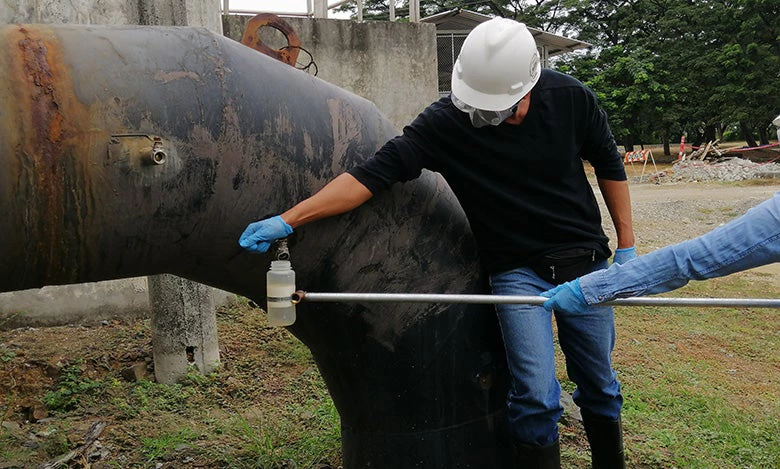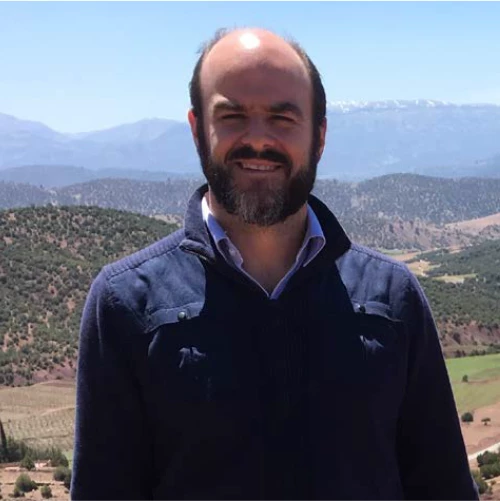COVID-19 has continued to evolve into a major public health and economic crisis, which has brought tremendous financial and social hardship on populations across the globe. Such a multifaceted crisis requires an arsenal of innovative tools and approaches.
One of the unconventional solutions that researchers have pursued since the beginning of the pandemic is to track the presence of the genetic material of the SARS-CoV-2 virus in wastewater to better understand the spread of the virus in communities. To put it in simple words: by analyzing for the presence of the virus in the poop sent down our sewers, we get to trace the virus.
But how does this work?
This line of investigation is defined as Wastewater-Based Epidemiology (WBE), a proven investigative approach that has provided real-time information on the health of populations for decades , for example in the detection of polio in communities, or in the exposure of populations to chemicals or pathogens.
In the case of COVID-19, the genetic footprint of the virus is shed in the feces of infected individuals and transferred into the wastewater . By measuring the concentration of the viral materials in samples, one can obtain information on the extent of the spread of the virus in any community, including asymptomatic cases. Since each sample can represent a large portion of the community which is served by a sewage network, wastewater testing allows for rapid and cost-effective tracking of disease trends at the population-level.
In the case of COVID-19, research has shown that individuals shed the virus even before developing symptoms. WBE then becomes a complementary early warning system and surveillance mechanism, which can promptly inform decision-making and crisis management . WBE is also an inclusive testing method particularly relevant to monitoring disease transmission in the most vulnerable, as all individuals living in a catchment area are covered by wastewater data monitoring, regardless of their socio-economic background, presence of symptoms or access to clinical testing.
Piloting WBE in Ecuador
This endeavor started with a partnership with Biobot, a spin-out company from the Massachusetts Institute of Technology (MIT). The initiative involved conducting a pilot program in Guayaquil, the second largest city of Ecuador, which was one of the first cities in the region to be hit hard by the pandemic.
When implementing a wastewater-base epidemiology approach, several key players have to be mobilized, such as the agencies responsible for wastewater sampling, research labs or universities to analyze the genetic material, and a coordinating agency with the leadership to liaise with health authorities. In the case of Guayaquil, the pilot’s foundations were set on the collaboration between the municipal water authority in Guayaquil (EMAPAG) and its private water and sanitation services concessionaire, Interagua, as well as with Biobot, which provided technical assistance to the local research facility, the Escuela Superior Politécnica del Litoral (ESPOL).
EMAPAG coordinated the efforts and reached out to the Public Health Emergency Operations Committee (Comité de Operaciones de Emergencia, or COE) at the provincial level to start involving health authorities so that epidemiological surveillance knowledge could be used to inform emergency response to the COVID-19 crisis in Guayaquil.
The pilot successfully enhanced local capacity in WBE, which then prompted the municipal water authority in Guayaquil to enter into a 1-year partnership with ESPOL to perform weekly analyses of wastewater in different locations in Guayaquil.
With this contract in place, this city of 2.7 million inhabitants will be able to set a sustainable basis for tracking COVID-19 at the community level. This pilot has created a new ecosystem of engagement between water and health stakeholders, a critical element for sustained success.
Data collection right under our feet
Other pilots have been initiated with Biobot in Uruguay and with the Netherlands’ KWR Water Research Institute in Morocco.
The Water and Health Global Practices of the World Bank are now teaming up to expand these wastewater-base epidemiology efforts to national and regional levels . The ongoing collaboration will start with the development of a WBE Implementation Guidebook for our country partners and will include a high-level ministerial meeting in Latin America, where the experience of Ecuador and other countries, will be showcased to build momentum for investments in WBE across the region.
The COVID-19 pandemic has created the opportunity to raise awareness and lay the foundations for carrying out WBE campaigns and tap into the continuous flow of population data right beneath our feet . We can harness the current momentum to develop cost-effective and inclusive WBE programs that can lead to sustainable, cost-effective surveillance systems supporting effective emergency preparedness and response, now, and in the future.






Join the Conversation